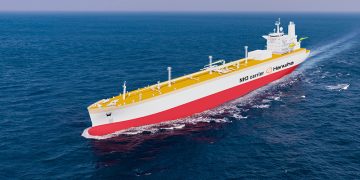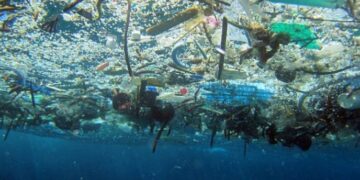In line with greater awareness across the global business sector of the link of sustainability to business survival and longevity, sustainability has become a particularly relevant concept in shipping industry. However, achieving sustainability goal normally takes time and requires efficient and transparent reporting as investors are increasing seeking responsible investment and requiring more insight into the companies’ prospects. How can shipping organizations accomplish this efficient reporting?
The concept of sustainable development in business
The UN defines sustainable development the one that meets the needs of the present without compromising the ability of future generations to meet their own needs. In the business sector, sustainability is an approach to creating long-term value, taking into consideration all the three key pillars: environmental (being ecologically responsible), social (respecting human labor) and economic (the profit of economic value). In this context, sustainability is linked to company longevity.
Megatrends impacting sustainability:
- Changing demographics: Migration, Urbanization, Ageing
- Technological advancement: Risks linked to innovation
- Climate change: Threats to global ecosystems
- Socio-economic disparities: Integrated economy deepening inequalities
What about sustainable development in shipping?
Most of the elements of the UN 2030 Agenda and the 17 sustainable development goals (SDGs) will only be realized with a sustainable transport sector supporting world trade and facilitating global economy. Most relevant for IMO’s work in particular are the following SDGs:
- 5 (gender equality): To address the traditionally male-dominated shipping industry that leaves the sector behind in terms of diverse ideas, the IMO has launched Women in Maritime programme, encourages Member States to enable women to train alongside men in their maritime institutes and acquire the high-level of competence that the maritime industry demands.
- 7 (clean energy): The Global Maritime Energy Efficiency Partnership (GloMEEP), a joint project of the Global Environment Facility (GEF), United Nations Development Programme (UNDP) and IMO, was launched in September 2015. Focusing on developing countries, where shipping is increasingly concentrated, GloMEEP is creating global, regional and national partnerships to build capacity to address maritime energy efficiency and for countries to bring this issue into the mainstream within their own development policies, and dialogues. GloMEEP recently launched the Global Industry Alliance to Support Low Carbon Shipping and the GMN project, to enable developing countries, especially Least Developed Countries and Small Island Developing States, to effectively implement energy-efficiency measures.
- 13 (climate action): Emissions from international shipping are regulated by Annex VI of IMO’s MARPOL Convention. They cover air pollution, energy efficiency and GHG emissions. In addition, the London Protocol addresses carbon capture and sequestration in subsea geological formations and marine geoengineering, such as ocean fertilization, which have great potential for climate change mitigation. A landmark development was the 2018 IMO adoption of an initial IMO strategy on reduction of GHG emissions from ships.
- 14 (life below water): To help protect maritime wildlife, IMO’s work includes reduction of underwater noise from ships and adopting measures to avoid collisions between ships and marine mammals. IMO has also banned discharge of harmful litter from ships and is part of the Global Partnership on Marine Litter, while the dumping of wastes at sea is regulated by the 1972 Convention on the Prevention of Marine Pollution by Dumping of Wastes and Other Matter, commonly called the London Convention, and its 1996 Protocol.
Developing a maritime sustainability report: 5 stages
In a recent report, MPA Singapore cited the following steps for the development of efficient sustainability reports:
Stage 1: Governance & Stakeholder engagement
Any successful sustainability programme requires a clear tone at the top championing sustainability. Governance includes:
- key sustainability working groups (work, health and safety),
- the Steering Committee (typically comprising senior management) and
- the Board (that holds overall responsibility for sustainability).
A vital step is to identify and engage all the spectrum of various stakeholders: Customers, employees, NGOs, government, partners, suppliers, investors, etc. This will ensure meaningful feedback on sustainability performance.
Stage 2: Identify material matters
Clarity is required to identify potential Economic or ESG issues that may affect your company and stakeholders. ESG stands for Environmental, Social and Governance factors which help companies to evaluate on how far advanced they are with sustainability. Material matters for maritime are:
- Governance (Anti-corruption, business ethics, regulatory compliance, etc.)
- Environmental (BWM, Climate Change, emissions and waste management, fuel consumption, etc.)
- Social (Diversity, talent attraction and retention, OHS, etc.)
- Economic (Carbon offsetting, economic sustainability and performance)
-Step 1: Identify (List down potential material topics and study relevance to company and key stakeholders through stakeholder consultations)
-Step 2: Analyze and prioritize (Rank material matters based on strategic importance, stakeholder impact and ESG value chain impact and consider creating Material Matters Matrix)
-Step 3: Validate (Conclude on material sustainability matters and present to Board for approval)
-Step 4: Review: 3 common challenges to developing a sustainability report
- Sustainability report lacks clarity and direction, as report audience is not clearly defined
- Daunting to collect and manage sustainability data
- No corporate emphasis on sustainability matters, sustainability seen as added workload
Stage 3: Sustainability policies, practices and targets
-Step 1: Disclose sustainability policies and practices
Set out the company policies, practices and performance in relation to the material factors identified, including both quantitative and qualitative information.
-Step 2: Set short-term and long-term targets for each material ESG factor for subsequent reporting periods. Companies may consider setting clear and measurable targets through the SMART methodology:
S – pecific: State clearly what the organization wants to achieve.
M – easurable: How will the organization evaluate the extent of which the goal has been successfully met?
A – chievable: Is this an achievable goal?
R – elevant: Does the goal tie in well with the strategic plan?
T – ime-bound: Establish a sense of urgency so that it fosters the need to have good time management, allowing for timely and successful completion.
-Step 3: Applying it to maritime
Governance:
- Practice: Whistleblowing policy, regular corporate governance briefings, internal compliance framework.
- Target for future reporting: Zero bribery and fraud cases.
Environmental
- Practice: Full compliance to regulations, internal management systems developed to ensure emissions compliance, technologies adopted to further enhance vessels’ efficiency
- Target for future reporting: Full compliance with applicable laws and regulations, no fines, long-term emission reduction target, TCFD adoption date.
Social
- Practice: Safety Committee to oversee safety culture, regular H&S trainings, certified SMS in place
- Target for future reporting: Zero fatalities, continuous reduction in lost-time incidences and accident frequency rate towards zero.
Economic
- Practice: Development of sustainable and cost-effective solutions
- Target for future reporting: Achievement of XX turnover, X% Y-o-Y revenue growth.
Stage 4: Data collection and compilation and report drafting
This emphasizes on the need to implement appropriate processes, systems, and controls to collect reliable data in line with identified sustainability KPIs. Data collection includes:
- Identify responsible persons for different tasks;
- Ensure regular checks on progress; and
- Collect information in a systematic way
When drafting the report, incorporate the following principles:
- Successful messaging of sustainability issues
- Adhering to the reporting standards
- Effective communication style
- Timely delivery
Stage 5: Performance Management
To generate continuous value from your company’s sustainability programme, an effective sustainability performance management process needs to be implemented.
- Analyze data to identify performance gaps against target.
- Report performance to internal and external stakeholders and obtain feedback.
- Refine and/or revise policies/practices/targets.
- Plan and execute new projects to improve performance.
Overall, key features of features of the sustainability reporting requirements should include the following:
- Companies have to publish a sustainability report at least once a year, no later than 5 months after the end of each financial year.
- The report should describe the sustainability practices with reference to five key components: material ESG factors; policies, practices and performance; targets; sustainability report framework; and the Board statement.
- If a company excludes a primary component, it must describe what it does instead with reasons of doing so.
- The sustainability report will be based on the principles set out in the Guide providing an accurate and balanced view of the risks and opportunities in a concise manner.
- SGX does not prescribe any sustainability reporting framework. Companies should carefully select appropriate framework(s) for their business model and industry. Reports do not require external assurance, though companies which have been reporting for several years are recommended to do so.





























































